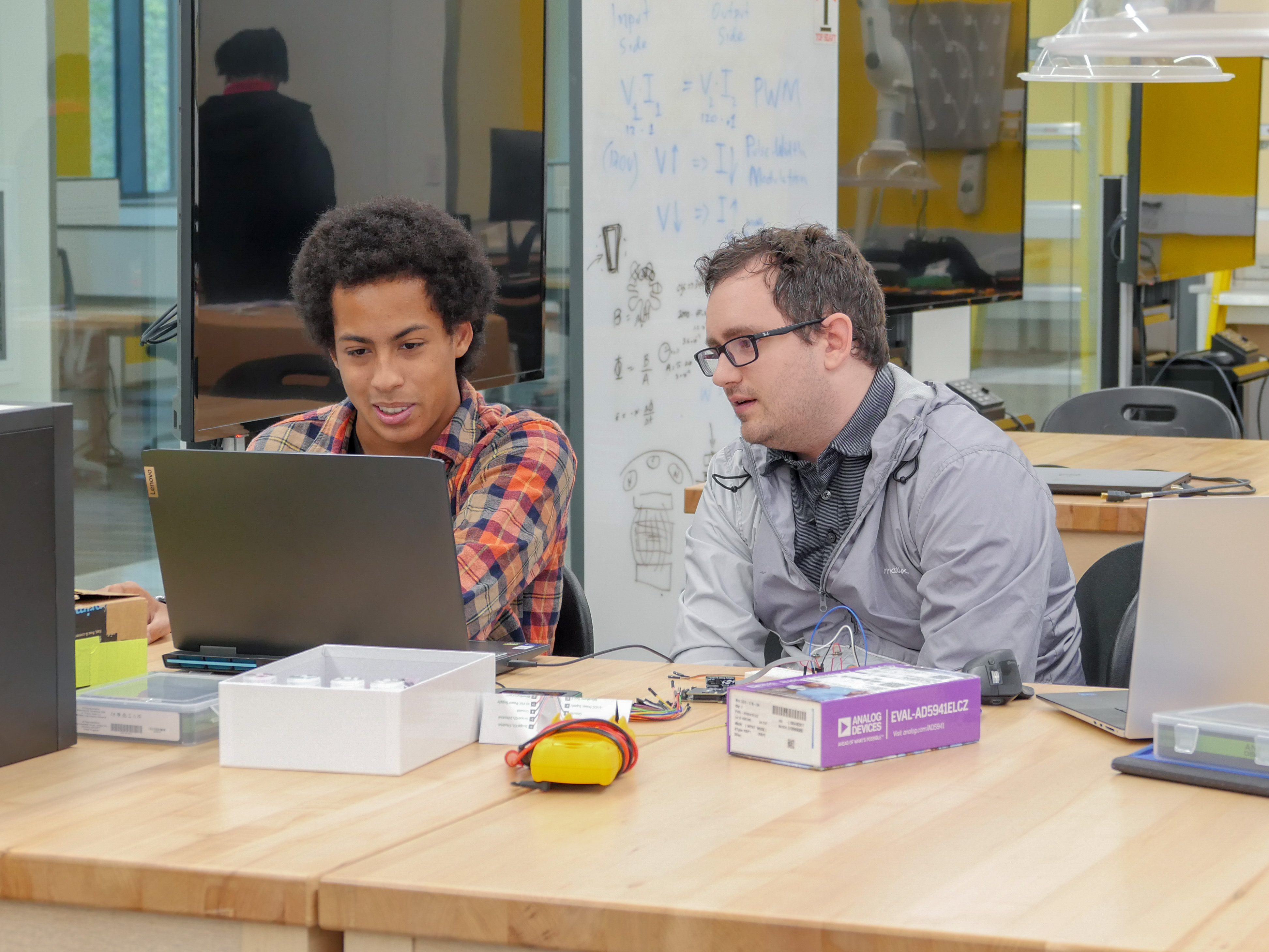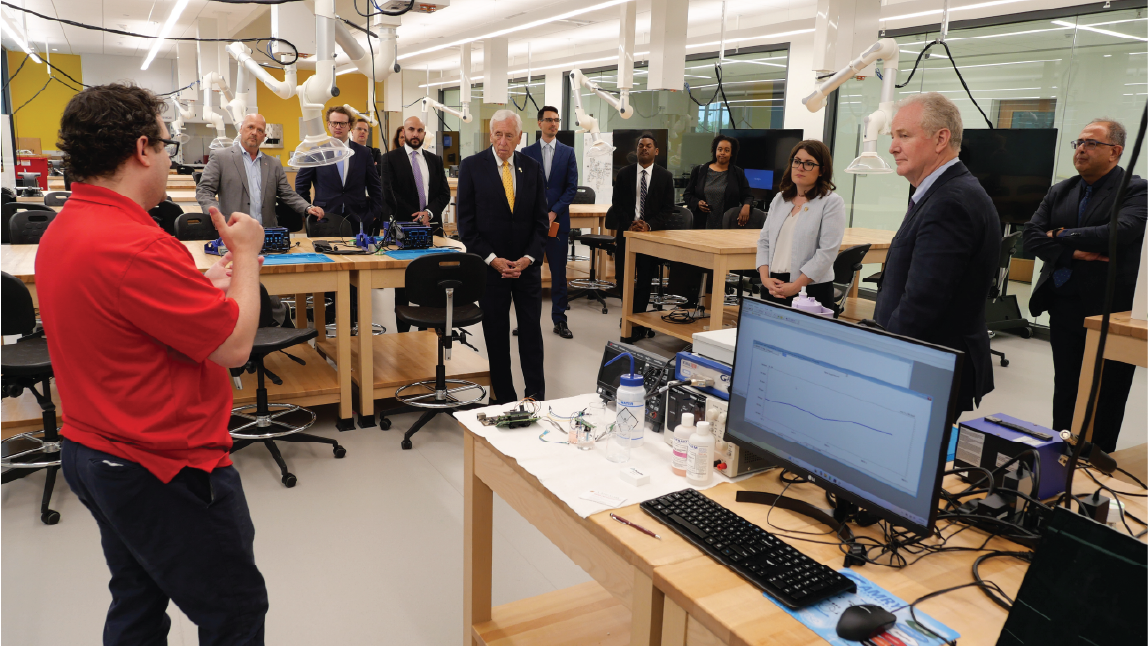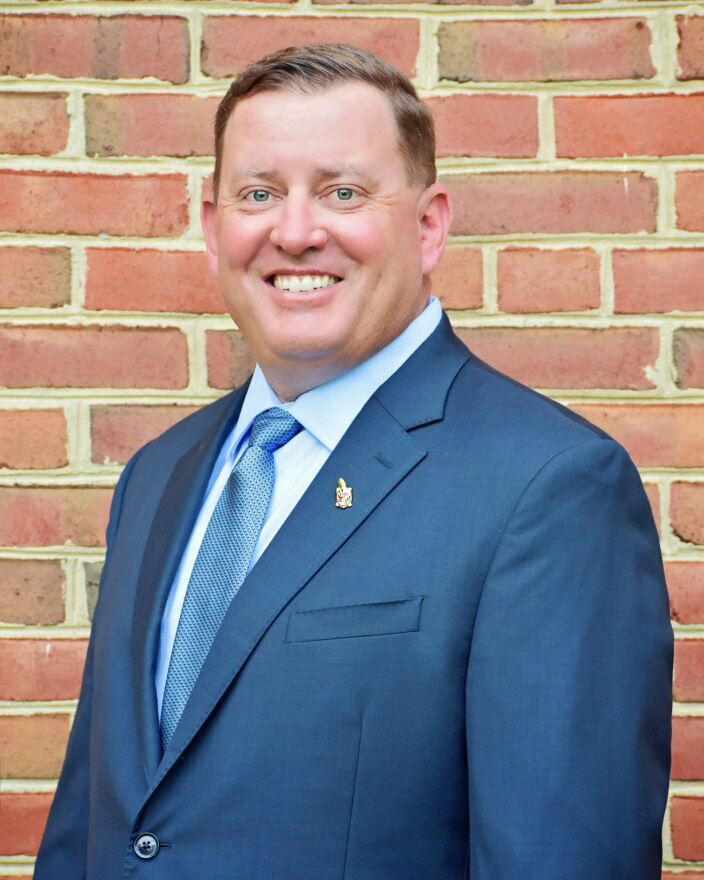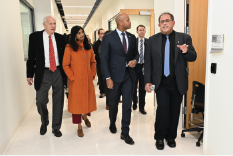News Story
Teaching Students Specialized Skills for Success

A University of Maryland (UMD) program is teaching specialized engineering skills and providing new opportunities for community college students with help from a National Science Foundation (NSF) grant.
UMD used the NSF grant to create the “Democratizing Research and Experimental Education for Microelectronics” (DREEM) program. The goal is to connect community colleges with UMD’s resources and give students the skills they need to have a lucrative career in the microelectronics industry workforce.
“The DREEM program showed me the real-world applications of microelectronics. In doing so it also better prepared me for my future Electrical Engineering classes,” said a DREEM program participant.
Second-year electrical engineering students from Montgomery College (MC) and the College of Southern Maryland (CSM) can join the program to contribute to academic research, gain experience in the microelectronics industry, and make valuable professional connections, all with financial support. The goal is to help foster a rapid expansion of the number of students interested and qualified to pursue careers in the microelectronics industry.
Both federal government and industry entities are investing in building the microelectronics workforce. There is a real need to teach Maryland students the skills they need to excel in the industry.
As part of the program, participants spent the spring 2024 semester working on a piece of bigger research projects and became experts on their topics.
“The project I was given required me to go above and beyond my academic level in order to achieve my goal. I learned many new skills and practices which added value to my resume and character,” said a DREEM program participant from CSM.
Two students were assigned to the UMD MATRIX Lab and had access to its advanced laboratories and equipment. They helped test a flexible sensor that could be used to measure the bending of a robot in order to control motion.
“I'm glad I had the opportunity to participate in the DREEM project. The experience enhanced my teaching and supervisory skills. I’ve also learned to be flexible and adapt plans when needed,” a supervisor said. “Reflecting on this project also shows me what works, and which parts could be improved.”
 At the end of the semester, students presented the research they worked on at a poster session. They discussed the experiments they did, equipment they built, and data they collected. They also talked about the context and motivation behind their projects as well as the choices they made and why. Poster sessions teach skills like succinctly explaining complicated research and adequately answering questions on the spot.
At the end of the semester, students presented the research they worked on at a poster session. They discussed the experiments they did, equipment they built, and data they collected. They also talked about the context and motivation behind their projects as well as the choices they made and why. Poster sessions teach skills like succinctly explaining complicated research and adequately answering questions on the spot.
Project List
- “Adapting Commercial Gas Sensors for Higher Sensitivity”
- “Benchtop LiDAR Experiment”
- “Neural Networks”
- “Bend Sensing of a Flexible Segment for Robotic Fish”
- “Integration of pH Sensing into an Ingestible Capsule Prototype”
- “Analog Computing Circuits for Sensor Fusion Applications”
- “Airborne Odorant Handling System”
- “Cell Capacitance Sensor”
- “Design and Development of Impedance Plethysmography for Vascular Flow Monitoring”
- “Analog Computing Circuits for Sensor Fusion Applications”
- “Analog Circuits for Cyclic Voltammetry”
Many students collected data that will push the larger projects forward, ultimately helping the labs involved. In the fall, the students will take new career-related steps, including transferring to UMD.
“By providing extra academic support and professional experiences to those students looking into the transition to 4-year degrees or industry positions, we hope to ensure that they succeed,” a supervisor said. “This program not only improves the coordination between Maryland's community colleges and universities, but also the academic ties to Maryland's local microelectronics industry.”
“The DREEM program has led to me receiving a full-time position as an electrical engineering intern,” a participant said. “I now have a solid foundation toward a productive future while I obtain my bachelor’s degree.”
About the DREEM program
Democratizing Research and Experiential Education for Microelectronics (DREEM) is a three-year, $325K National Science Foundation (NSF) grant. The new funding is part of NSF’s new $18.8M Experiential Learning for Emerging and Novel Technologies (ExLENT) program for developing a strong key technology workforce. The initial cohort includes 27 teams, tasked with expanding practical learning opportunities and growing talent nationwide.
Published June 10, 2024







